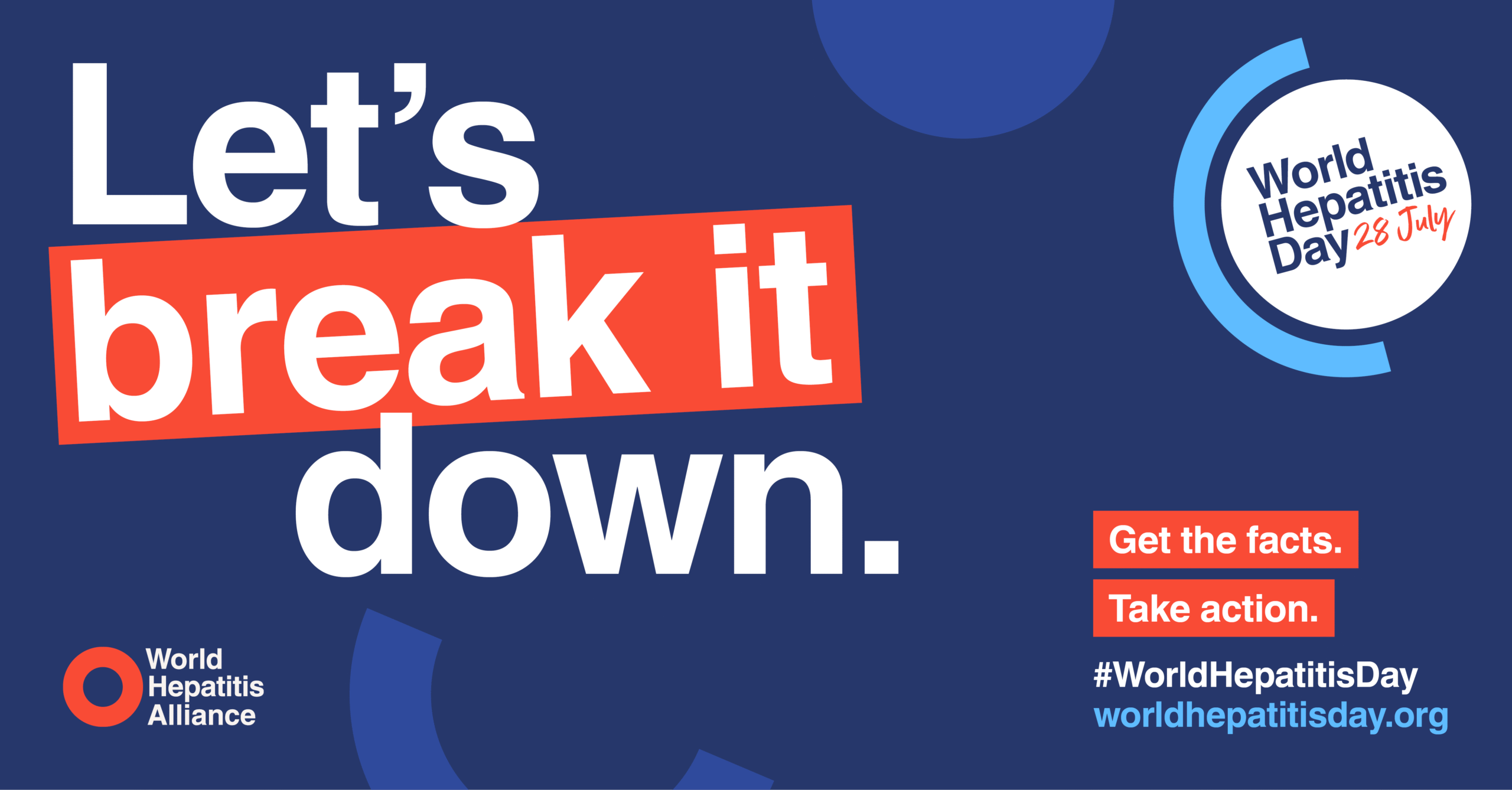- Date Published:
- Category: Blogs, Health Awareness, Liver
World Hepatitis Day 2025

July 28 is World Hepatitis Day when communities, doctors, nurses, researchers, and governments raise awareness of viral hepatitis a liver inflammation that can lead to chronic liver disease, cirrhosis and liver cancer. For 2025, the focus is on breaking down the facts and taking action.
Here are 5 facts about hepatitis...
There are 5 viruses that predominately impact the liver
Hepatitis A, B, C, D & E. Each is very different and has unique transmission pathways. For example, hepatitis A & E are mostly spread through a fecal-oral route. Easily preventable with proper hand hygiene and food preparation techniques. Hepatitis B is spread through blood and bodily fluids, while hepatitis c is transmitted through blood to blood contact. Hepatitis D is a unique virus because it can only infect individuals already infected with hepatitis B.
Most people are unaware they are infected
Estimates say that less than 20% of people with the virus are aware they have the infection. Many people with hepatitis B or C are unaware they are infected because the virus can cause a "silent" infection without causing any symptoms for many years, or even decades.
Treatable versus curable
Hepatitis C is now considered curable in approximately 95% of cases, while hepatitis B infections can be treated, but not cured. Not all people will need treatment, but lifelong checkups are necessary. Hepatitis A is typically a short term infection and is generally considered curable with supportive treatment.
Liver cancer is the most common cause of death
Patients with viral hepatitis can be at an increased risk of liver cancer and it is the most common cause of death in those with hepatitis B. The challenge lies in the fact that this disease can be asymptomatic (meaning no symptoms) and detection doesn't occur until the disease has progressed. Hepatitis D is treatable, but not curable. Hepatitis E is usually cleared by the body within 4-6 weeks without any specific treatment.
Screening is easy
A simple blood test (sometimes called a hepatitis panel) will detect the presence of hepatitis viruses or antibodies to them. Antibodies would indicate a past or current infection. There are even at-home kits available for hepatitis b and c.
What can you do?
- Know your status
- Get tested for viral hepatitis so you don't unknowingly spread the virus. Also, you can begin getting the treatment you need if you are infected.
- Vaccination
- This vaccine is recommended for virtually everyone, talk to you doctor to learn more.
- Learn the facts
- For example, some believe it is unsafe to hug or share a meal with someone who is infected, when in fact, this is NOT unsafe. Unsafe practices include: sharing IV needles/syringes, razor blades & toothbrushes and not practicing safe sex.


